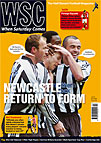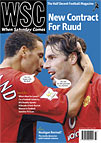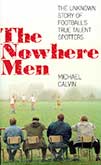 The unknown story of football’s true talent spotters
The unknown story of football’s true talent spotters
by Michael Calvin
Century, £14.99
Reviewed by Terry Staunton
From WSC 322 December 2013
Shaun O’Connor arrived at the Potters Bar pitches to check on the progress of some under-12 players who’d shown potential, but when the referee for a neighbouring game between teams of under-9s failed to show, he volunteered to officiate. He was about to start a new job with Arsenal’s academy and one eight-year-old, playing on the wing for Luton, caught his eye.
“This kid was quick. His close control, running with the ball, was the best I’d ever seen. He had fantastic balance, and didn’t mind leaving his foot in. He had that nasty streak you need, had such a will to win.” The kid in question was Jack Wilshere, but while there’s an obvious romanticism to O’Connor’s right-place, right-time tale, it’s hardly typical of the experiences of the scouts Michael Calvin, a writer for the Independent On Sunday, focuses on in this engrossing book.
True, there are equally fortuitous stories about the discoveries of the likes of Raheem Sterling and Jack Butland, but for the most part the author paints a picture of an aspect of the football world where the hours are long and lonely, while the rewards are few. More common are the examples of scouts dragging themselves to lower-league and youth matches for little more than petrol money and a half-time sandwich, the unsung shadows of the game where talent-spotters spend as much time watching each other for leads as they do the action on the pitch.
The bottom end of the business offers little in the way of job security, Calvin finds, as changes in the higher echelons of a club can result in new brooms bringing in their own people to scour the UK and beyond for the future Wilsheres of the game. He also draws intriguing contrasts between clubs’ attitudes to scouting; whereas one unnamed old school manager has yet to embrace email, David Moyes went as far as setting up a “secret” room at Everton where sports scientists and strategists kept him updated via the internet on as many as 200 potential signings at any one time.
Calvin learns that this modern approach owes a lot to Billy Beane, the American baseball figure whose use of statistical analysis turned around the underperforming Oakland Athletics, a rags-to-riches story that became the Oscar-nominated film Moneyball, starring Brad Pitt as Beane. Arguably, the shift towards such practices has been propelled by the influx of US owners into the English game, but television and the internet play equally significant roles, the availability of matches to be watched and rewatched meaning clubs are less reliant on the humble bloke on the terraces scribbling away in a notebook.
Ultimately, The Nowhere Men scores on two fronts: as a history of scouting and its increasingly quaint and outdated traditions, and as a pointer towards the more scientific methods that look likely to determine how most future stars are found and nurtured, as the financial investments – and potential payoffs – grow ever larger.
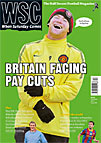
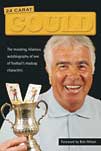 by Bobby Gould and David Instone
by Bobby Gould and David Instone 